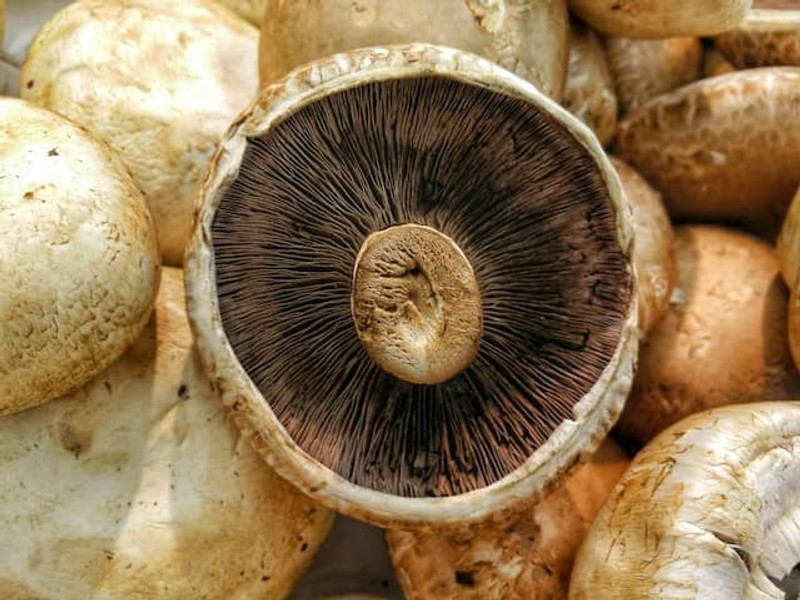Mushroom Sustainability: Cultivation, Benefits and Market Growth
Posted by Troy Cosky, Founder FunGuy Grow Supply on 22nd Jul 2023
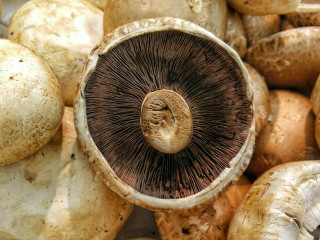
Is Mushroom Growing Sustainable?
Are you interested in learning about the fascinating world of mushroom sustainability? In this article, we will explore the cultivation of mushrooms, their growing market demand, and the innovative use of mushrooms as biodegradable alternatives.
Mushrooms are not only delicious but also packed with essential nutrients that offer numerous health benefits. By adopting sustainable production practices, mushroom cultivators can ensure a healthy ecosystem while meeting the ever-increasing market demand for these versatile fungi. We will delve into how bioactive ingredients found in edible mushrooms have been harnessed for various purposes, including medicinal applications.
Additionally, we will examine the environmental impact of mushroom farming and discuss conservation efforts to minimize any negative consequences. Furthermore, we will explore food safety measures and traceability in mushroom production to guarantee consumer satisfaction.
Finally, we will shed light on mycoremediation – using mushrooms to clean up pollutants – and highlight their potential as biodegradable alternatives in various industries. Get ready to dive into the world of sustainable mushroom cultivation and discover its promising future prospects!
Key Takeaways
- Mushroom cultivation offers a sustainable solution for food production, with high yield potential and the ability to be grown year-round in controlled environments.
- Edible mushrooms are nutrient-dense and offer numerous health benefits, including anticancer properties, immune system activation, and anti-inflammatory effects.
- Mushroom farming prioritizes soil health and biodiversity conservation, while also recycling waste and producing bioenergy.
- The mushroom industry has promising prospects in waste management and environmental restoration, with the potential for economic growth and job creation.
Sustainable Mushroom Cultivation: Health Benefits, Market Demand, and Biodegradable Alternatives
You'll be amazed by the health benefits, market demand, and eco-friendly alternatives of sustainable mushroom cultivation. Mushroom sustainability is gaining traction as a viable solution for food production due to its low environmental impact, efficient resource utilization, and economic opportunities. The cultivation of mushrooms, also known as mushroom farming or mushroom agriculture, involves growing edible mushrooms for consumption.
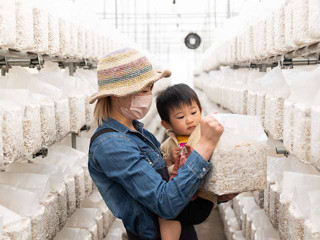
This practice has gained popularity in recent years due to the increasing market demand for organic and locally sourced food. Mushroom production offers several advantages over traditional crops. Unlike conventional farming methods that require large amounts of water and land resources, mushroom cultivation can be done in controlled environments such as indoor farms or greenhouses. This allows for year-round production without relying on weather conditions or seasonal changes. Additionally, mushrooms have a high yield potential compared to other crops; they can produce up to 25 times more protein per unit area than cattle farming.
One innovative aspect of sustainable mushroom cultivation is the use of biodegradable mushroom bags. These bags are made from natural materials such as cornstarch or agricultural waste and serve as an alternative to plastic containers commonly used in the industry. Biodegradable mushroom bags not only reduce plastic waste but are used to produce additional nutrients for the growing mushrooms as they decompose.
As a mushroom farmer, you play a crucial role in promoting organic mushroom farming practices that prioritize soil health and biodiversity conservation. By adopting sustainable techniques such as composting and crop rotation, you can ensure the long-term viability of your farm while minimizing negative environmental impacts.
Sustainable mushroom cultivation offers numerous benefits ranging from improved resource efficiency to reduced environmental footprint. In the next section, we will discuss the health benefits of nutrient-dense mushrooms.
Health Benefits of Nutrient-Dense Mushrooms
Improve your overall well-being by incorporating nutrient-dense mushrooms into your diet and enjoying their numerous health benefits. Mushrooms are packed with vitamins, minerals, antioxidants, and bioactive compounds that promote a healthy body and mind.
Here are some of the specific health benefits you can reap from consuming mushrooms:

- Anticancer properties: The phenolic compounds, polyphenols, and terpenoids found in mushrooms exhibit high antioxidant activity and have shown promising anticancer effects. These powerful substances help protect against the development and progression of cancer cells in the body.
- Immune system activation: Lectins and glucans present in mushrooms have immune-potentiating properties. They enhance the body's defense against infections and diseases by activating and strengthening the immune system.
- Anti-inflammatory effects: Terpenoids found in mushrooms possess anti-inflammatory properties, which can help reduce inflammation-related diseases such as arthritis, asthma, and heart disease. Incorporating mushrooms into your diet may contribute to alleviating chronic inflammation.
- Antioxidant activity: Mushrooms contain ergosterol, a natural antioxidant that helps protect cells from oxidative damage caused by harmful free radicals. This antioxidant activity is essential for maintaining cellular health and preventing premature aging.
- Environmental sustainability: Mushroom cultivation offers a sustainable solution for addressing environmental metrics. It involves recycling wastes from other industries to grow nutritious food while also producing bioenergy.
By including nutrient dense mushrooms in your meals, you can boost your immune function, reduce inflammation-related diseases, protect against oxidative damage, and contribute to environmental sustainability through mushroom cultivation practices.
Sustainable Mushroom Production Practices for Cultivation
By embracing eco-friendly methods, we can revolutionize the way mushrooms are grown and contribute to a more sustainable future. Sustainable production practices for mushroom cultivation play a crucial role in achieving this goal. The sustainability of mushrooms encompasses various aspects such as cultivation techniques, market demand, and exploring biodegradable alternatives.To ensure sustainable production practices, mushroom farmers can focus on maximizing mushroom yield per square foot. This involves optimizing growing conditions, including temperature, humidity, and light exposure. By creating an ideal environment for mushroom growth, farmers can increase their yield while minimizing resource consumption.

One example of sustainable cultivation is the Portobello mushroom farm located in California. They've implemented innovative techniques to enhance productivity and minimize environmental impact. Through their advanced growing systems and efficient use of resources like water and energy, they've become a model for sustainable farming practices.
Furthermore, exploring biodegradable alternatives for growing media is another key aspect of sustainable production. Instead of using non-renewable resources like peat moss or synthetic materials, agricultural waste or sawdust can be utilized as mushroom growing medium. These renewable resources not only reduce dependence on finite resources but also help minimize waste generation.
By adopting these sustainable production practices, the mushroom industry can address environmental concerns while meeting market demands for nutrient-dense fungi. Consumers are increasingly recognizing the health benefits of mushrooms as a high-yield and reliable food source that has the potential to reduce reliance on meat and dairy products.
Harnessing Bioactive Ingredients in Edible Mushrooms
Discover the incredible power of harnessing the bioactive ingredients in edible mushrooms and unlock a world of nutritional and medicinal benefits that'll leave you amazed and inspired.
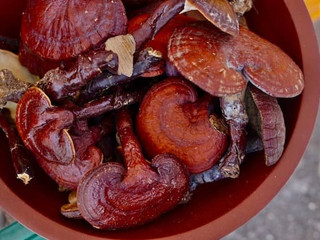
Edible mushrooms contain a wide range of bioactive ingredients, including proteins, polysaccharides, fatty acids, dietary fibers, vitamins, minerals, lectins, glucans, phenolic compounds, polyphenols, terpenoids, ergosterols, and phytosterols. These components contribute to the numerous health benefits associated with consuming mushrooms.
One key advantage of harnessing these bioactive ingredients is their potential to enhance immune system function. The polysaccharides found in mushrooms have been extensively studied for their ability to stimulate immune cells and improve overall immune response. In addition to boosting immunity, these compounds also show anti-tumor properties. They can inhibit tumor growth by promoting apoptosis (cell death) in cancer cells.
Furthermore, the phenolic compounds and polyphenols present in mushrooms exhibit high antioxidant activity. Antioxidants help protect our cells from damage caused by free radicals and oxidative stress. Studies have shown that these compounds can reduce inflammation and prevent chronic diseases such as cancer and cardiovascular disease.
The terpenoids found in mushrooms possess antimicrobial properties that can help fight against harmful bacteria. They also demonstrate anticancer effects by inhibiting the growth of cancer cells. Additionally, terpenoids have anti-inflammatory properties which can alleviate symptoms associated with inflammation-related diseases such as arthritis.
Moreover, edible mushrooms are a rich source of ergosterols which are natural antioxidants and serve as a dietary precursor for vitamin D2 production in our bodies. Vitamin D's various health benefits including supporting bone health and regulating immune function.
Environmental Impact and Conservation
Explore the far-reaching effects of mushroom farming on the environment and how it can contribute to conservation efforts while maintaining a sustainable food production system. Mushroom sustainability isn't just about cultivating a nutritious food source; it also involves considering the environmental impact and promoting conservation practices.
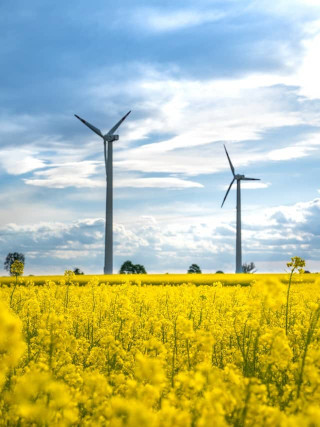
By adopting sustainable cultivation methods and exploring biodegradable alternatives, the mushroom industry can minimize its ecological footprint and contribute to a greener future.
- Utilization of agricultural byproducts as substrates: Mushroom growers often rely on agricultural waste products such as straw, sawdust, or wood chips. This practice not only reduces waste but also provides an alternative use for materials that would otherwise be discarded.
- Reusable containers and alternative packaging options: To minimize plastic waste, mushroom producers are increasingly turning to reusable containers or exploring biodegradable packaging materials made from renewable resources like plant fibers or mycelium-based materials.
- Energy-efficient cultivation methods: Mushroom farms are implementing energy-saving techniques such as efficient lighting systems, insulation, and heat recovery systems. These measures help reduce carbon emissions associated with traditional farming methods.
- Contribution to maintaining local ecosystems: Mushrooms play a crucial role in maintaining healthy ecosystems by decomposing organic matter 'mushroom substrate' and releasing nutrients back into the soil. Sustainable mushroom cultivation practices prioritize preserving biodiversity and protecting natural habitats.
By understanding the environmental impact of mushroom farming and embracing sustainable practices, we can ensure that this industry continues to thrive while minimizing negative consequences on our planet.
Economic Sustainability in Mushroom Cultivation
With a growing demand for sustainable and nutritious food options, mushroom farming presents exciting economic opportunities that can drive job creation and foster economic growth. The market for mushrooms has been steadily increasing due to their numerous health benefits and versatility in culinary applications. As consumers become more conscious of the environmental impact of their food choices, the demand for sustainably grown mushrooms is expected to continue rising.
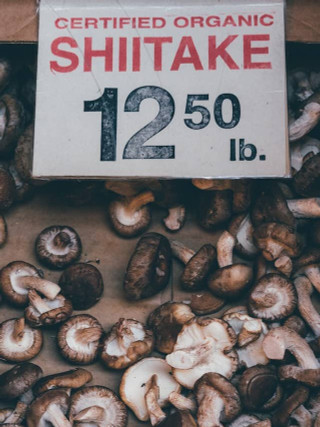
Mushroom cultivation offers a range of economic opportunities, from small-scale operations to large commercial farms. The initial investment required for setting up a mushroom farm is relatively low compared to other agricultural ventures. Additionally, mushrooms have a fast-growing cycle, allowing farmers to harvest multiple crops throughout the year and generate income regularly.
To further illustrate the potential economic benefits of mushroom cultivation, consider the following table:
| Economic Opportunities | Benefits |
|---|---|
| Job Creation | Mushroom farming requires skilled labor at various stages such as substrate preparation, spawn production, and harvesting. This creates employment opportunities in rural communities. |
| Value-Added Products | Mushrooms can be processed into various value-added products like dried mushrooms, extracts, powders, or supplements which can fetch higher prices in the market. |
| Export Potential | With an increasing global demand for organic and sustainable food products, there is significant export potential for locally grown mushrooms. This can boost foreign exchange earnings. |
By capitalizing on these economic prospects in mushroom cultivation, entrepreneurs can contribute not only to their financial success but also to larger goals of promoting sustainability and addressing food security concerns.
Food Safety and Sustainable Certifications in Mushroom Farming
To ensure the safety and quality of your mushroom products, you can implement comprehensive food safety standards and maintain strict adherence to best sustainable certifications and tracking codes, allowing for easy identification and traceability throughout the supply chain. By doing so, you prioritize food safety and provide consumers with peace of mind.

Here are three key measures you can take to ensure food safety and traceability in mushroom farming:
- Implement comprehensive food safety standards: Establishing robust systems that encompass every step of the cultivation process is crucial. This includes implementing good agricultural practices (GAPs) to minimize potential contamination risks. Proper hygiene practices should be followed during harvesting, mushroom packaging, and transportation to prevent any compromise to the mushrooms' safety.
- Maintain strict adherence to certifications: Obtaining relevant sustainable certifications such as Good Manufacturing Practices (GMP), Hazard Analysis Critical Control Point (HACCP), or Global Food Safety Initiative (GFSI) schemes demonstrates your commitment to producing safe mushrooms. These certifications require regular audits and inspections, ensuring compliance with stringent standards.
- Utilize tracking codes: Each package of mushrooms should have a unique tracking code that allows for easy identification and traceability throughout the entire supply chain. This enables swift action in case of any issues or sources of contamination. Additionally, it facilitates monitoring the movement of mushrooms from farms to retailers or restaurants, providing transparency in the supply chain.
By prioritizing food safety measures like these in mushroom farming, you not only safeguard consumer health but also instill confidence in your sustainable practices. With a strong focus on traceability, you can quickly identify any potential problems or areas for improvement within your operations.
Mycoremediation and Biodegradable Applications of Mushrooms
Let's delve into the fascinating world of mycoremediation and discover how mushrooms can revolutionize waste management and environmental restoration. Mycoremediation is the process of using fungi and their mushroom mycelium to break down pollutants and toxins, making it an effective method for cleaning up contaminated soil and water. Mushrooms have unique enzymes that can degrade a wide range of organic compounds, including petroleum hydrocarbons, pesticides, heavy metals, and even radioactive materials.
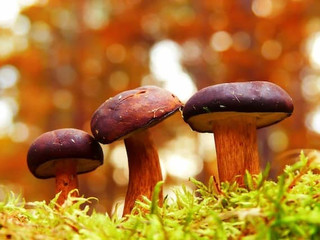
One of the key benefits of mycoremediation is its sustainability. Unlike traditional methods that involve harmful chemicals or expensive equipment, mycoremediation utilizes natural processes to clean up the environment. Mushroom producers can cultivate specific species known for their ability to target certain contaminants, allowing for targeted cleanup efforts. These mushrooms can be grown using various sustainable methods such as organic farming practices or controlled indoor environments.
In addition to mycoremediation, mushrooms also offer biodegradable alternatives in various industries. One notable example is the use of mushroom-based packaging materials. These materials are made from agricultural waste and mycelium, providing a sustainable alternative to single-use plastics. Not only are they biodegradable but they also have excellent insulation properties.
To evoke emotion in our audience, let's take a look at this table showcasing the benefits of mushroom sustainability:
| Benefits | Description |
|---|---|
| Environmental Restoration | Mushrooms help restore polluted soil and water by breaking down contaminants through mycoremediation processes |
| Sustainable Cultivation | Mushroom growing methods prioritize eco-friendly practices like organic farming or controlled indoor environments |
| Biodegradable Alternatives | Mushroom-based packaging offers a sustainable alternative to single-use plastics with excellent insulation properties |
As we explore these exciting applications of mushrooms in waste management and environmental restoration, it becomes evident that there are promising prospects for this industry. The development of new technologies and increased awareness about the importance of sustainability will further drive the growth of mushroom-based solutions.
Future Prospects and Industry Developments
The future holds immense potential and exciting advancements for the mushroom industry, as it continues to innovate and revolutionize various sectors of waste management and environmental restoration. Here are four reasons why the future prospects and industry developments in mushroom sustainability are so promising:

- Breakthroughs in cultivation techniques: With ongoing research and development, new methods of cultivating mushrooms are being discovered that enhance efficiency, yield, and quality. From optimized growing conditions to advanced genetic engineering approaches, these breakthroughs will enable the industry to meet growing market demands sustainably.
- Expanding market opportunities: As consumer awareness about sustainability grows, there's an increasing demand for eco-friendly alternatives across industries like food packaging, construction materials, and textile manufacturing. Mushrooms offer a biodegradable solution with the ability to be transformed into various products such as packaging foam or leather-like materials.
- Collaboration between startups and established businesses: The mushroom cultivation sector is witnessing collaborations between startups specializing in innovative techniques and larger companies looking to integrate sustainable solutions into their supply chains. This partnership fosters knowledge exchange, accelerates technological advancements, and opens up new market avenues for both parties.
- Government support and investment potential: Governments worldwide are recognizing the importance of sustainable practices in waste management and environmental conservation. This support translates into increased funding opportunities for research projects focused on mushroom sustainability initiatives. Additionally, investors are keen on backing businesses that align with environmentally friendly practices.
As we look toward the conclusion of this exploration into mushroom sustainability's prospects and industry developments, it becomes evident that the mushroom industry has positioned itself at the forefront of innovation within waste management systems.
Embracing Mushroom Farming: A Sustainable Future with Economic Opportunities
By embracing the potential of mushroom farming, you can not only contribute to a more sustainable future but also tap into a lucrative industry that offers diverse economic opportunities. Mushroom cultivation is gaining recognition for its sustainable benefits, health advantages, and economic potential. As consumers become more conscious about their environmental impact and seek healthier food options, mushrooms have emerged as an ideal choice.
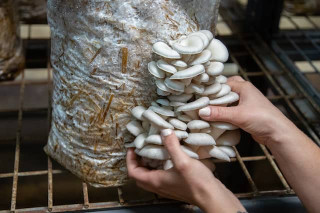
Mushroom sustainability lies in their ability to grow on various organic substrates, including agricultural waste such as straw and sawdust. This reduces the reliance on traditional farming methods and decreases the need for synthetic fertilizers and pesticides. They efficiently convert waste materials into valuable products like protein-rich food sources and natural biodegradable packaging alternatives.
The market for mushrooms continues to expand rapidly due to increasing consumer demand for nutritious and sustainable foods. With their unique flavor profiles and versatile culinary applications, mushrooms have gained popularity across different cultures worldwide. Moreover, as people become more aware of the health benefits associated with mushroom consumption – such as improved immune function and reduced risk of chronic diseases – the demand for these fungi is expected to rise further.
Mushroom cultivation offers a promising solution for addressing sustainability challenges in food production while providing economic opportunities. By utilizing innovative techniques such as growing mushrooms on biodegradable substrates or exploring alternative uses like packaging materials, we can reduce our environmental footprint and promote a circular economy.
Embracing mushroom farming not only contributes to a greener future but also opens doors to profitable ventures in the ever-expanding market of sustainable products. So why wait? Join this exciting journey towards mushroom sustainability today!
Discover Sustainable Mushroom Cultivation at FunGuy Grow Supply: Quality Supplies, Biodegradable Substrates
Visit FunGuy Grow Supply for Top-Quality Mushroom Growing Supplies, including a wide range of Mushroom Grow Bags, Growing Kits, and Grain Spawn Bags. Browse our selection of Mushroom Grow Tents and Monotubs, and start your sustainable cultivation journey today!
Frequently Asked Questions
How long does it take to grow mushrooms?
Mushrooms, depending on the species and growing conditions, typically take anywhere from 1 to 3 months to grow. This timeframe includes the different stages of cultivation: spawning, incubation, fruiting, and harvesting.
Throughout this process, various factors such as temperature, humidity, light exposure, and substrate composition need to be carefully controlled. It's crucial to maintain optimal conditions for successful mushroom growth and ensure a high-quality yield.
What are the different types of mushrooms that can be cultivated sustainably?
Several different types of mushrooms can be cultivated sustainably. Some common examples include oyster mushrooms, shiitake mushrooms, and button mushrooms. These varieties have been successfully grown using sustainable practices such as organic composting, efficient water usage, and renewable energy sources.
By adopting these methods, mushroom cultivators can minimize their environmental impact while producing a reliable supply of nutritious and delicious fungi for the market.
What are the best practices for maintaining the quality and freshness of mushrooms during transportation?
To maintain the quality and freshness of mushrooms during transportation, there are several best practices to consider.
First, ensure that the mushrooms are properly harvested and stored at the right temperature and relative humidity levels.
It's also crucial to use appropriate packaging materials that allow for proper airflow while protecting the mushrooms from damage.
Additionally, efficient transportation methods should be employed to minimize handling time and prevent exposure to extreme temperatures.
Regular monitoring of temperature and humidity levels during transit is essential to ensure optimal mushroom quality upon arrival.
Can mushrooms be used as a natural alternative to chemical pesticides in agriculture?
Mushrooms can indeed be used as a natural alternative to chemical pesticides in agriculture. They contain bioactive compounds that have been found to possess insecticidal, fungicidal, and bactericidal properties. These compounds can effectively control pests and diseases while minimizing harm to the environment and human health.
Additionally, mushrooms have shown potential in promoting plant growth and improving soil fertility through their symbiotic relationship with plants. Further research is needed to optimize their use in agricultural practices.
Are there any regulations or certifications in place to ensure the sustainability and ethical practices of mushroom cultivation?
There are regulations and certifications in place to ensure the sustainability and ethical practices of mushroom cultivation.
One example is the Certified Organic label, which guarantees that mushrooms are grown without synthetic pesticides or genetically modified organisms.
Additionally, some farms follow Good Agricultural Practices (GAP) guidelines, which promote sustainable farming methods and ensure worker health and safety.
These regulations help consumers make informed choices about sustainably cultivated mushrooms.
References
- El-Ramady H, Abdalla N, Badgar K, Llanaj X, Törős G, Hajdú P, Eid Y, Prokisch J. Edible Mushrooms for Sustainable and Healthy Human Food: Nutritional and Medicinal Attributes. Sustainability. 2022; 14(9):4941. https://doi.org/10.3390/su14094941
- Balaeș, T., Radu, B. M., & Tănase, C. (2023). Mycelium-Composite Materials-A Promising Alternative to Plastics?. Journal of fungi (Basel, Switzerland), 9(2), 210. https://doi.org/10.3390/jof9020210
- Grimm, D., & Wösten, H. A. B. (2018). Mushroom cultivation in the circular economy. Applied microbiology and biotechnology, 102(18), 7795–7803. https://doi.org/10.1007/s00253-018-9226-8
- Antunes, F., Marçal, S., Taofiq, O., Morais, A. M. M. B., Freitas, A. C., Ferreira, I. C. F. R., & Pintado, M. (2020). Valorization of Mushroom By-Products as a Source of Value-Added Compounds and Potential Applications. Molecules (Basel, Switzerland), 25(11), 2672. https://doi.org/10.3390/molecules25112672
- Ab Rhaman, S. M. S., Naher, L., & Siddiquee, S. (2021). Mushroom Quality Related with Various Substrates' Bioaccumulation and Translocation of Heavy Metals. Journal of fungi (Basel, Switzerland), 8(1), 42. https://doi.org/10.3390/jof8010042

